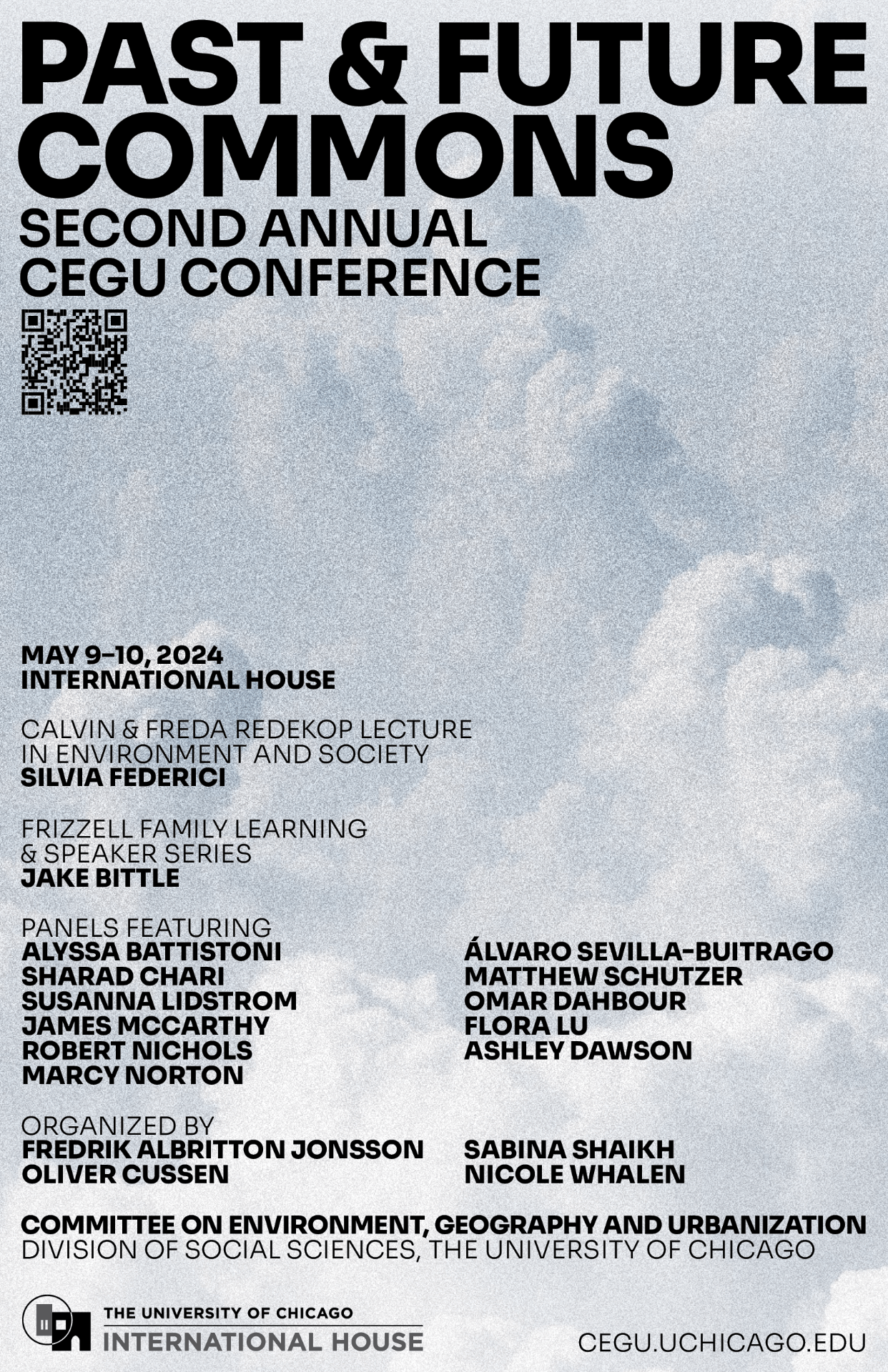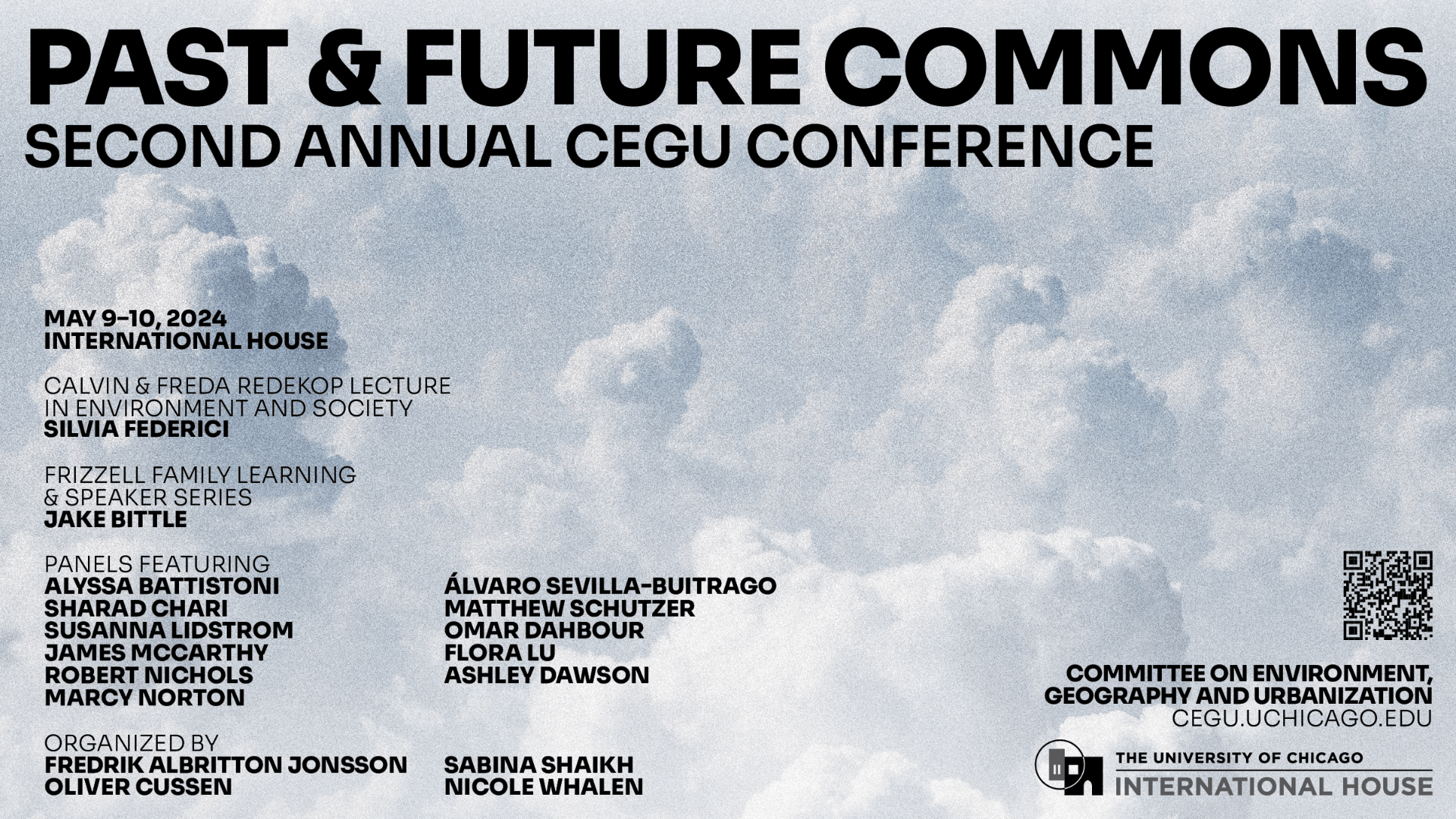Second Annual Conference, Committee on Environment, Geography and Urbanization (CEGU)
Division of Social Sciences, The University of Chicago
May 9–10, 2024 | International House
Register↗
Second Annual Conference, Committee on Environment, Geography and Urbanization (CEGU)
Division of Social Sciences, The University of Chicago
May 9–10, 2024
International House
Register↗
Panel Discussion
Planetary Commons
Moderated by Fredrik Albritton Jonsson
Friday, May 10, 2024, 9:00–10:30am
International House
The ocean commons: diminished, depleted and unequally distributed
Susanna Lidstrom, KTH Royal Institute of Technology
The United Nations Convention on the Law of the Sea, resulting from extended negotiations taking place between 1958 and 1994, defines and regulates the international ocean and seafloor, or the ocean commons. In this position paper, I outline how UNCLOS have diminished the size of these commons, contributed to the depletion and exploitation of marine resources and – despite defining resources in the international ocean as the common heritage of humankind – facilitated the “grabbing” of those resources by a small number of nation states. Against this history, the paper then considers the changing nature of the ocean commons in relation to three contemporary developments, including increasing datafication of the deep sea, implications for the ocean of the Paris Agreement and ongoing attempts to amend the Law of the Sea.
Three Scenes of Commoning and Destruction
Sharad Chari, University of California, Berkeley
In this position paper, I reflect on three scenes that have something to offer our capacity to engage the dialectics of communing and industrial destruction. The first two are from a history of commoning in the Indian Ocean city of Durban, and the making of a contradictory Indian commons that exploded its racial trappings in an event I think of as the South African commune, an event of incredible power and possibility. The third is a crucial point in Herman Melville’s Moby-Dick, a beguilingly encyclopedic text forced reluctantly into the genre of the Victorian novel but which is a most fitting work for an unraveling world. This is the moment in which the young Black mariner Pip falls into the ocean somewhere near Java and is for some time abandoned by his shipmates. Pip’s terrifying submergence is a precis of all scenes of commoning and destruction.
Common Time: Geology, Sovereignty, and the Planetary
Matthew Shutzer, Duke University
This paper examines the relationship between sovereignty and property in constructing a “geological commons” as the foundation for post-colonial India’s fossil economy. In so doing it asks whether sovereignty has been appropriately theorized by literature on the commons, or if it remains a category requiring deeper consideration than its use as a signifier for political space separable from both the market and juridical regimes of private property. The example of post-colonial India is used to frame contemporary invocations of sovereignty as an antidote to neoliberal enclosure and the environmental crisis of the planet. Rather than viewing sovereignty and property, or state and capital, as discrete logics for enclosing nature, this paper traces their historical imbrication in the production of the subterranean as a space of value in the twentieth century. In so doing it seeks to ask how post-colonial movements to re-encode nature beyond capital and empire might inform debates about the future commons in our present.

